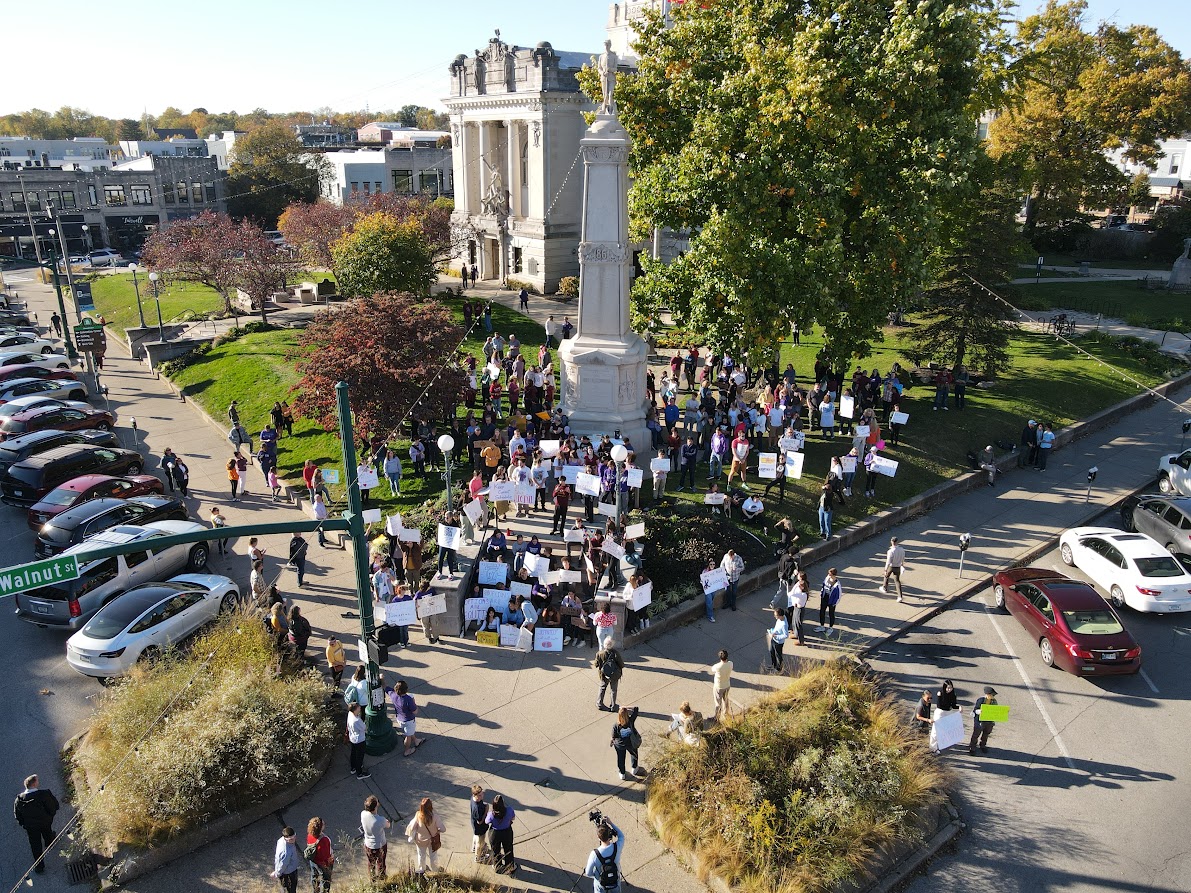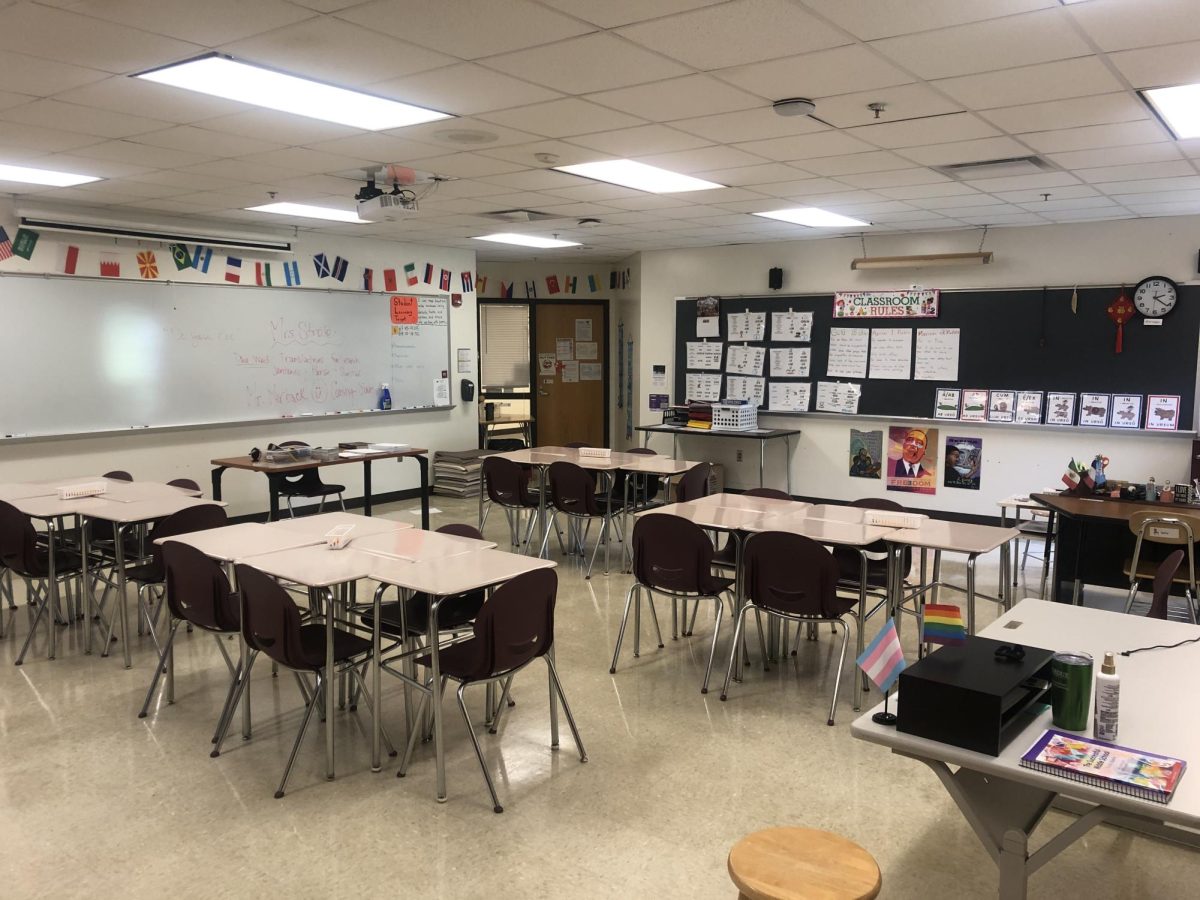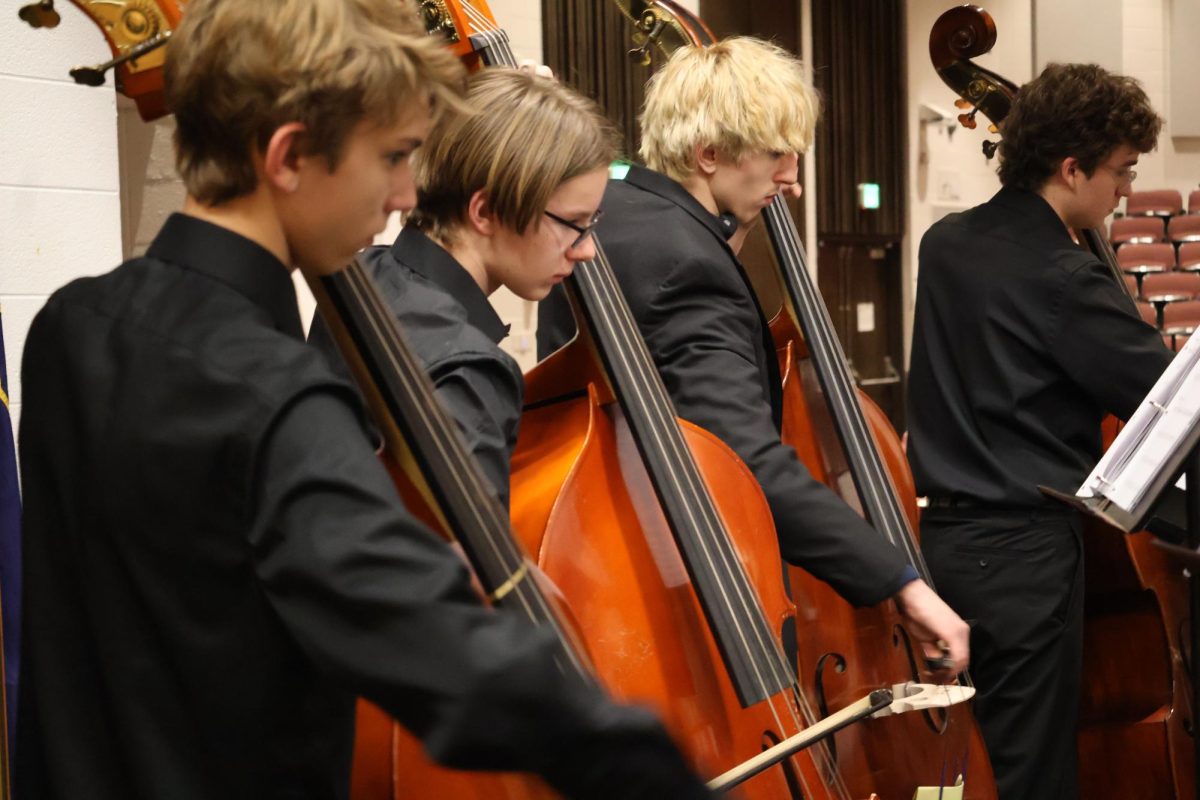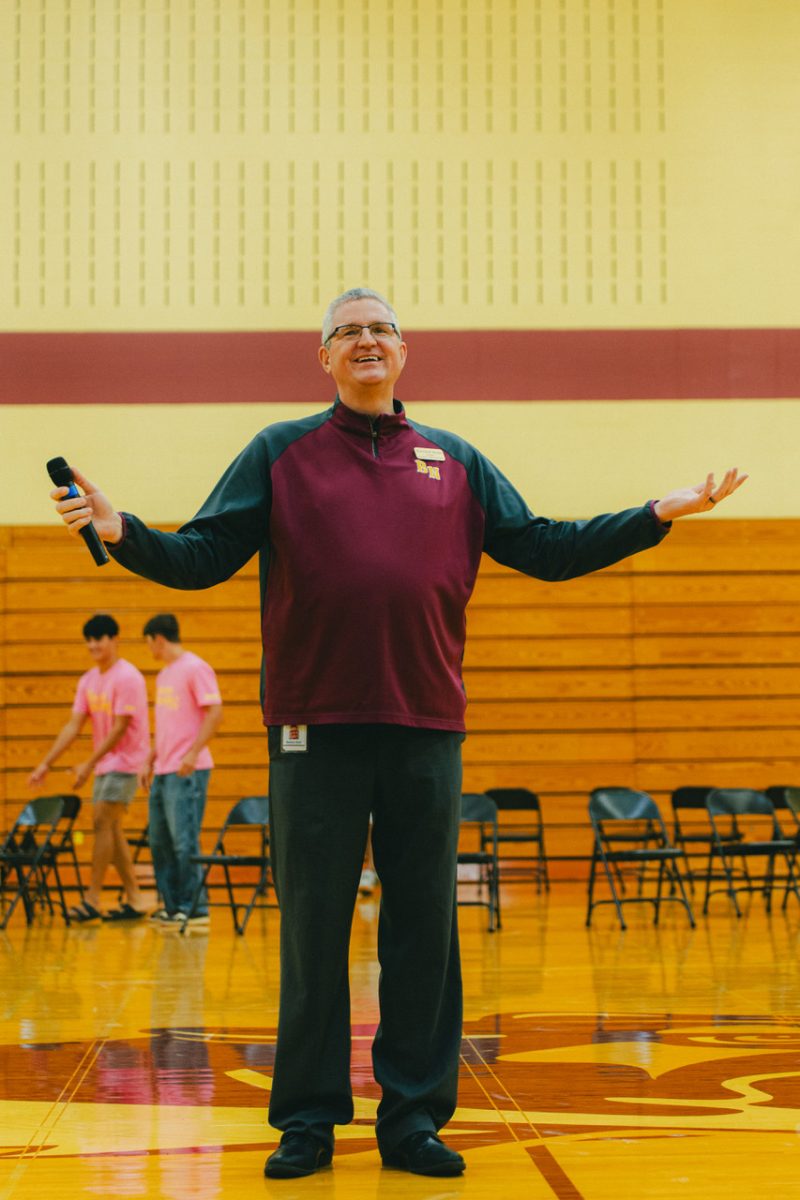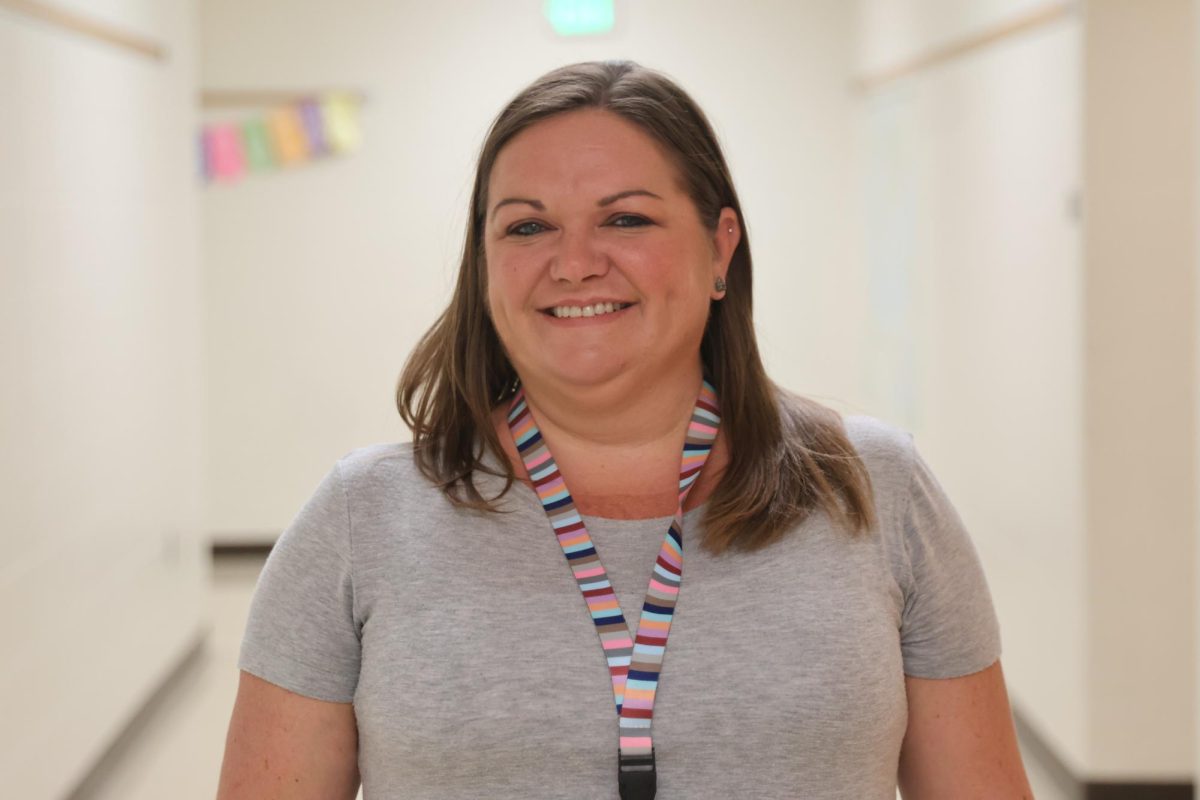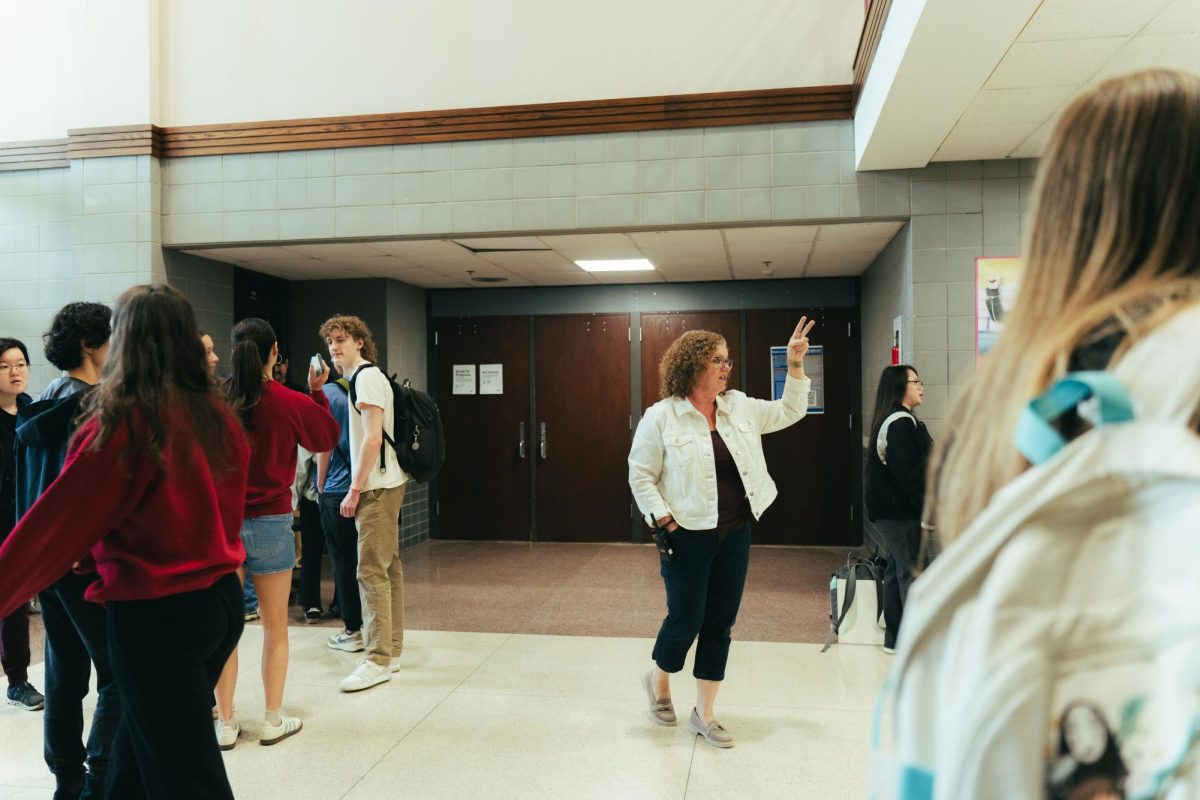On October 20, the MCCSC administration released a statement providing a basic outline of the proposed schedule change for all four Bloomington high schools. This hasn’t stopped the community from rallying against the decision as skeptics argue the letter provided little clarity to the situation. Hundreds of Bloomington residents protested the suggested changes at the Monroe County Courthouse on Monday as the next school board meeting looms on Tuesday, October 24th.
Faculty of Bloomington North sent a letter seeking answers from Dr. Jeff Hauswald signed by 98 staff members on Friday morning. In their message to the superintendent, the faculty questioned the use of ‘equity’ as a rationale for the change, the speed at which the decision was made, the potential impacts on course offerings, and an increased use of virtual instruction. Later that day, MCCSC released their plan of uniting the schools in a rotating, hybrid block schedule. According to MCCSC, “A hybrid block will be implemented that rotates the daily classes that are held.” This means that different classes would meet each day and alternate in some manner.
The letter sent in an email to parents and students by MCCSC also detailed the importance of having 60-minute classes. “Unlike the current block schedule at BHSN where four 80-minute classes are taken each day, the new schedule will allow for 60 minutes of instruction per class. A 60-minute class closely reflects the current amount of time for each class at BHSS.”
The announcement also stated the plan of a 16-credit schedule and a need for classes to meet more than 2.5 times per week on average. The letter said, “A 16-credit schedule will avoid many of the concerns stated by students and teachers related to fewer credits, less ability to enroll in the arts, less chance for early graduation, and other similar concerns.”
Meanwhile, the resistance to this plan has stayed strong. Those who argue against change believe that the lack of transparency by the school corporation now and in the past is a problem. While focus groups were formed to gather input on the schedule change, there were still more focus groups planned when the announcement of schedule parameters was made.
Individuals arguing against the decision want the entire process to slow down, which would provide opportunities for the open sharing of data and analysis of the potential ramifications of any schedule adjustment. Some are concerned that the proposed schedule change would result in a “reduction in force” of teachers spanning across all subject areas. Others are concerned that classes that are only offered at one school may start being broadcast to students at another via remote learning. In a previous interview, Hauswald said, “Through remote technology, there could be those opportunities for access if you had a common schedule.” Specifically, some teachers of foreign languages believe this plan would negatively impact learning as in-person teaching differs greatly from the online alternative.
A rally against the unification of schedules was held at the courthouse on Monday. Many concerned parents, teachers, and students gathered to demonstrate their shared beliefs. Students and parents spoke, and key points were expressed by everyone alike. Protestors referenced the phrase, “if it’s not broken, don’t fix it.” Bloomington North sophomore Nicole McIntosh said, “We have voices, and we will use them no matter what it takes.”
Meanwhile, a petition created on Change.org by “concerned families” expressing concerns for the alignment has gathered over 1,200 signatures in one day. The description begins by saying, “We, the undersigned parents, guardians, students, and community members of MCCSC urgently request your support and intervention concerning the recent MCCSC schedule alignment across high schools under the leadership of Dr. Jeff Hauswald.” The accompanying letter outlines widespread concerns about the motivation, validity, and communication surrounding the move to unify the high school schedules.
MCCSC said, “The new schedule changes will create increased options for students in a more equitable manner.” Even with the release of additional information, the opposition to schedule unification appears to continue its growth. Community members plan to speak directly to the board at Tuesday’s meeting while protests are held outside.


